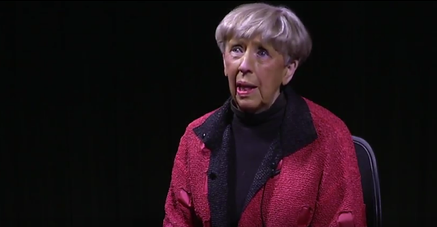Efforts to Combat Human Trafficking
- Published: 7/13/2016
- Comments
LANSING - “Slavery is not new, and that’s what human trafficking is, it’s slavery, we don’t really like that word but that’s what it is. So how do we persuade that it happens to you and to me ,” said Jane White the founder of the Michigan Human Trafficking Task Force.
As human trafficking crimes increase, many are starting to realize the vulnerability of sex and labor crimes right here in Mid- Michigan.
Jane White founded the Michigan Human Trafficking Task force 8 ½ years ago when she realized the immensity of the crime. She didn’t believe that it could be happening in Michigan, and there be such a lack of awareness. After gathering law enforcement officials from across the state and they talked about what it was, and all agreed they had cases.
Human Trafficking is defined as the recruitment, transportation, transfer, harboring or receipt of persons by improper means for an improper purpose including forced labor or sexual exploitation.
According to the National Human Trafficking Resource Center Michigan alone has reported a total number of 74 cases this past year, however the crime continues to go underreported due to the inability to truly measure the issue on a global scale. Still today there is no nationwide system of collection of data.
“Victims do not self report and we’ve never had a crime so heinous where victims don’t come forth at some point in time. We haven't had a crime where it is almost guaranteed that if one is trafficked one will be involved in some major kind of psychological trauma,” said White.
In the midst of the arrest of former Ingham County Prosecutor Stuart Dunnings this past March, people questioned the involvement of those in a position of power, mostly due to Dunnings efforts to end human trafficking and prostitution. He was arrested after a year long investigation, and now faces up to 15 criminal charges including engaging in the services of prostitution, pandering, and willful neglect of duty.
“It’s more than a law enforcement problem. While law enforcement is critical, our medical partners have been instrumental in identifying cases that we haven't thought about before. So when we look at that then we can understand that awareness and training are really important. One of the things that the task force does is train police officers all over the state. But we still have 70 percent of officers in Michigan who are not trained in the identification, and investigation of trafficking. The complexity is so very serious. It doesn’t happen in one spot,” she said.
Lansing-Area filmmaker Laura Swanson collaborated with White for her upcoming documentary “Break the Chain “ which focuses on Trafficking on a local level. Swanson knew the importance of truly grasping the reality of sex crimes vs the media portrayal.
“I wanted to make a film that utilizes the voices of survivors. We are all connected to the issue even though we may be unaware, from the products we buy, to what we observe. I think this film provided voice from the victims who experienced trafficking and honored their experiences, not exploiting them,” she said. The film is set to premier to the public in the fall.
This past month Michigan passed the Human Trafficking Notification Act. According to the Michigan Legislature the law requires for public transportation buildings such as rest stops and transit stations to require posting a human trafficking notice.


 Spanish
Spanish Chinese (Simplified)
Chinese (Simplified) Korean
Korean French
French German
German Hindi
Hindi Urdu
Urdu Japenese
Japenese Arabic
Arabic Russian
Russian Farsi
Farsi
